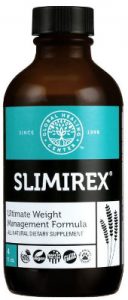If you struggle to control your weight, chances are you’ve thought to yourself it’d be wonderful to find a sure-fire way to drop a few pounds – or even a few stones. But, of course, as you’re no doubt aware, a fail-safe method to reduce weight is difficult to come by.
A sensible option isn’t just to try to eat less… but to eat *right*. That’s to say, eat the right foods. So, that means cutting out the fast food, pizzas, sugary drinks and high-process foods and replacing them with something altogether more friendly for the health of your body; foods that, as they’re digested, won’t actually fight your body as it tries to stay healthy.
All of which means then, that naturally-occurring foods are, as you may well have guessed, the correct choice here. But just which foods, in particular…?
Fruits
- Bananas – Thanks to being high in fibre and low in calories, bananas are great for weight-loss; it’s also worth bearing in mind that less ripe bananas contain less sugar content than their riper (i.e. older and browner) counterparts.
- Berries – again, the likes of taste-tastic strawberries, blueberries, raspberries and blackberries are fantastic sources for fibre, but are also crammed-full of Vitamin C, antioxidants (especially flavonoids) and smaller amounts of sugar than many other fruits.
- Grapefruit – particularly low in calories and great for fat-burning aims, this fruit – so one scientific study has discovered – aided dieters to significantly reduce their weight via eating half a grapefruit a day over a 12-week period.
Vegetables
- Broccoli – a typical cruciferous vegetable, broccoli is (again) high in fibre and low in calories; plus, it’s full of naturally-health-friendly nutrients. Indeed, experts believe that a single serving of broccoli (heated) will provide as much as twice the recommended amount of Vitamins C and K for daily intake.
Additionally, broccoli holds the distinction of being a negative-calorie food. What does this mean? It takes more calories to digest broccoli than it puts into the body (which, incidentally, is also true of grapefruit).
- Cabbage – another cruciferous vegetable, cabbage is also advantageous in the fibre stakes and, like its other cruciferous vegetable cousins, offers up rare sulphur-based compounds (glucosinolates), which may just offer anti-cancer properties.
Plus, it’s definitely worth mentioning that cabbage tends to be far from the most expensive among highly healthy foods, which may make it a particularly favourable option for many when it comes to doing the weekly shop.
- Cauliflower – a favourite ingredient in low-carb diets because of its reputation for being something of a rice-alternative (thereby potentially reducing carbohydrate levels), cauliflower again delivers in the high fibre department, just as it does in terms of many and various nutrients, including Vitamin C; a crucial component in oxidising (breaking down) saturate fat when you during moderate exercise (thus ensuring cauliflower is, without question, a boon for weight-loss).
An alternative – weight management supplements
Now, it’s worth pointing out that, if you suffer from certain allergies or know you’ll struggle to maintain healthy-eating plans that incorporate specific fruits and vegetables, there is another option. You may want to give the naturally-derived supplement route a go.
The following three products are popular examples of supplements available at The Finchley Clinic, which have been expertly created – wholly, mostly or in-part – to help people to lose weight…
Slimirex – vegan-safe and kosher- and halal-approved, this supplement’s herbal nutrients may help deliver weight loss, when combined with a low-calorie diet and an exercise plan.
Thinner G – a dynamic selection of botanicals that can bring about healthy weight loss via the blocking of sugar-uptake, fats and carbs, while appetite and cravings are also suppressed.
MicroCell Lipotone Intensive – a powder containing CL (conjugated lipoic acid), with l-carnitine and garcinia cambogia, this supplement may aid the natural management of fats and carbohydrates, when used as part of an exercise and dietary regime.

